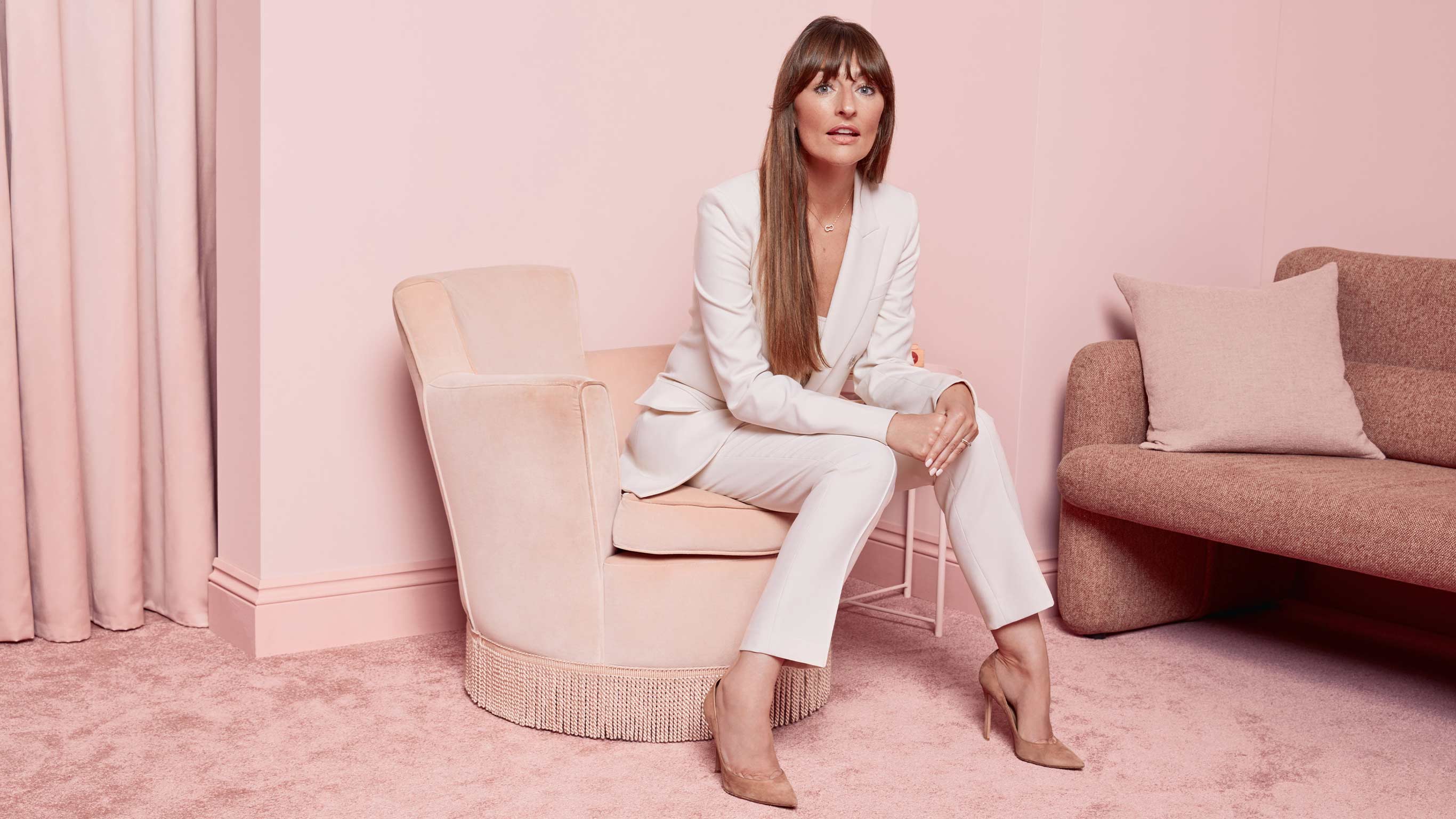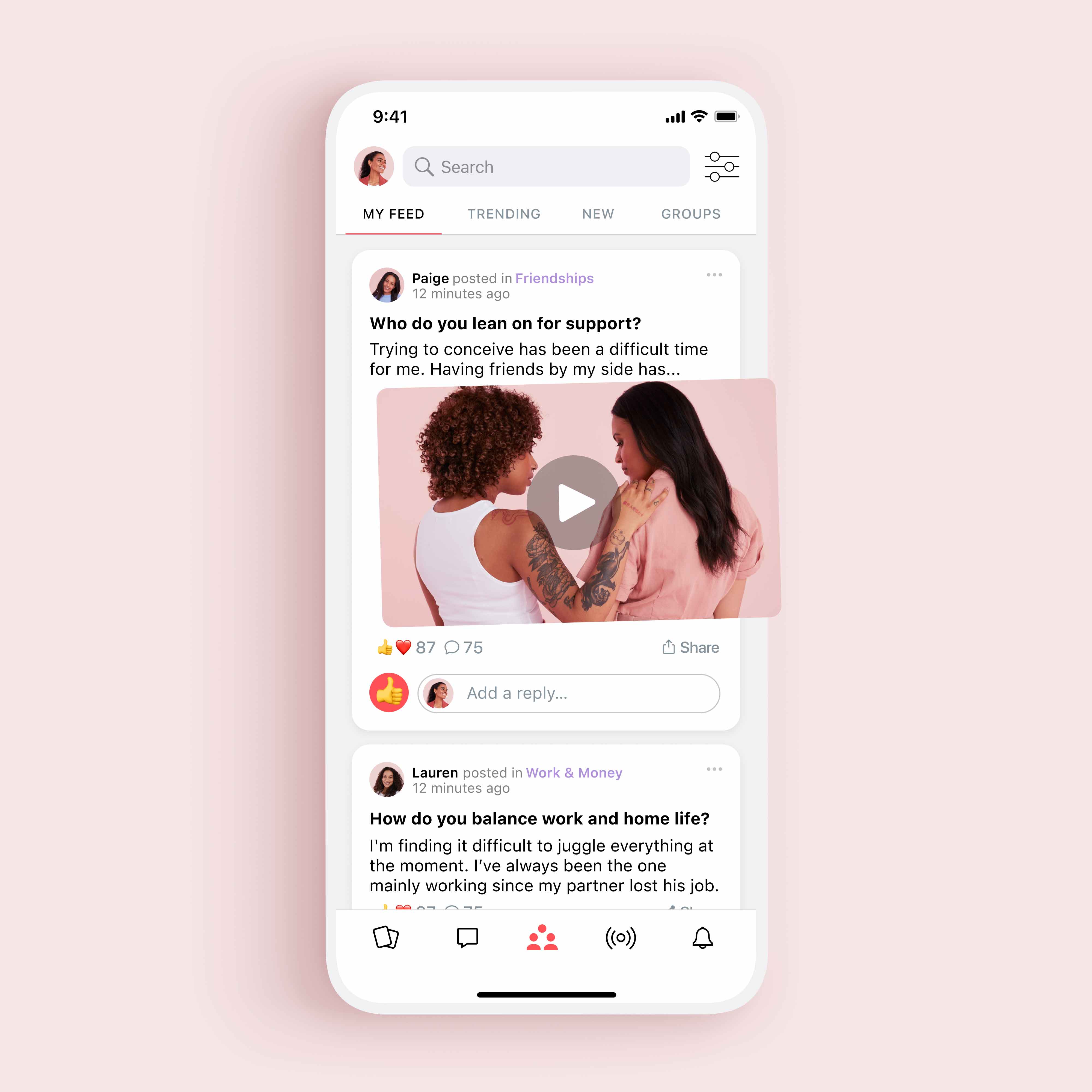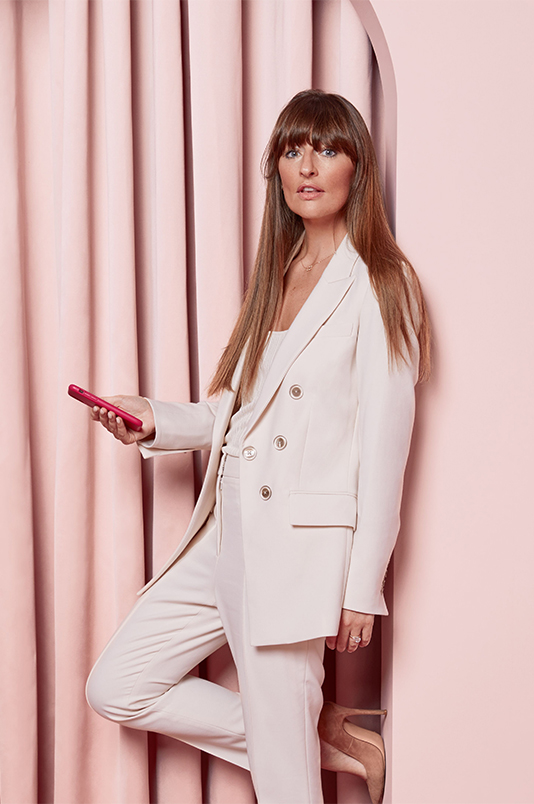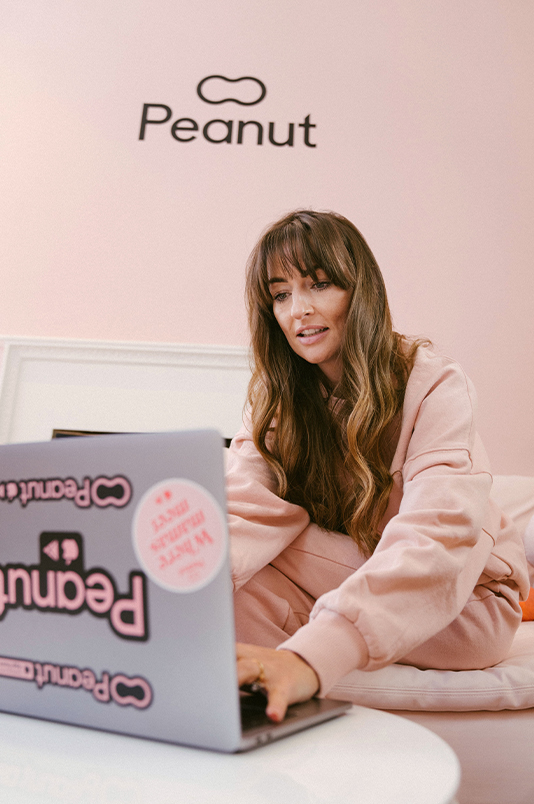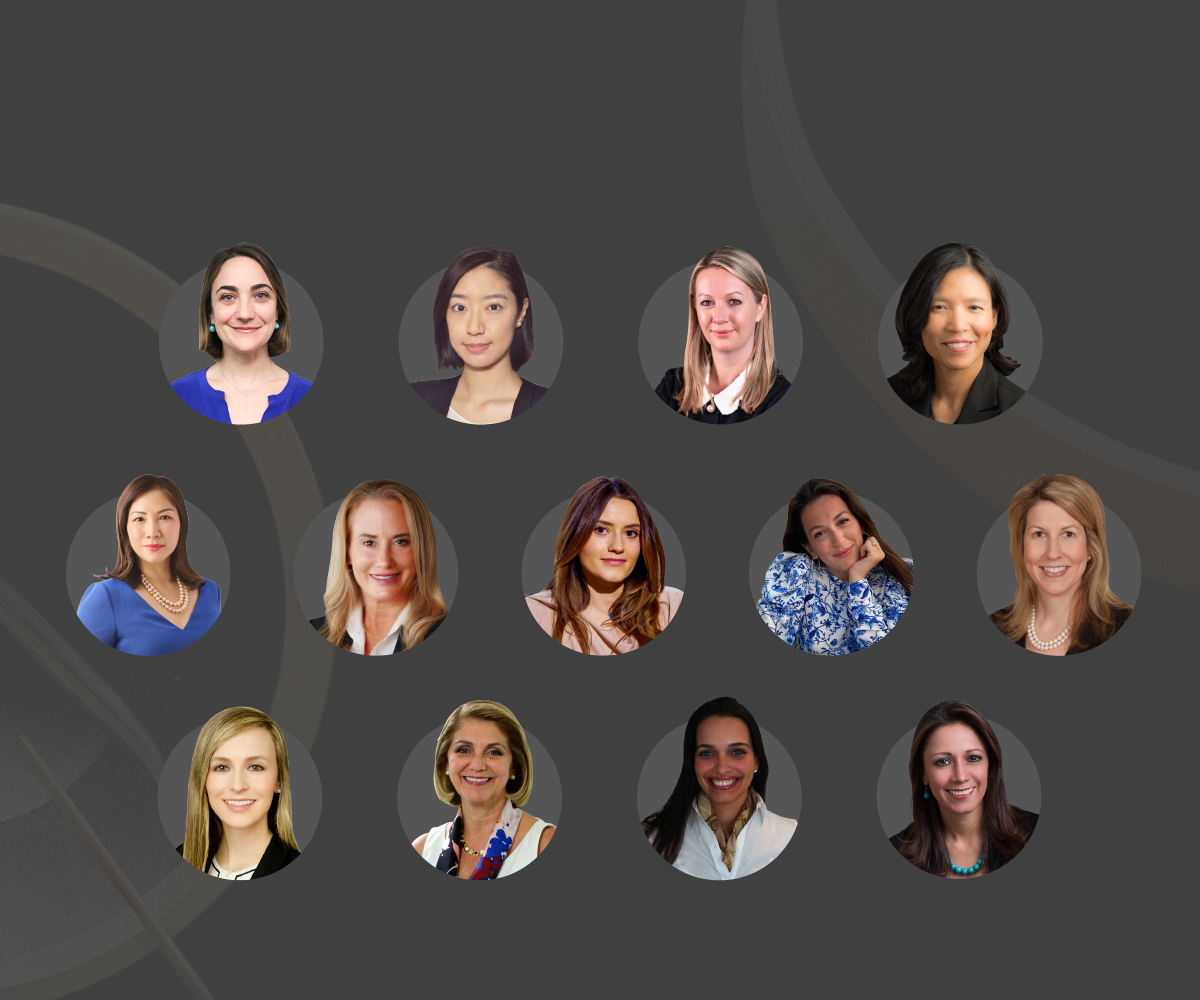Have your biggest challenges as a woman entrepreneur been gender-related in any way?
There are unquestionably key moments on Peanut’s journey that have been related to gender, who I am and the position I have. Right at the start, when I had everything ready to go, I was told I wouldn’t raise capital without a male co-founder. And people still ask me if I have enough time to commit to a business given that I have a family. I’m pretty sure no male founder has ever been asked the same question!
I did a fundraiser while pregnant with my second child, and I did everything I could to hide that pregnancy. Thinking about what my platform does, that’s ironic! I was introduced recently to another founder about to fundraise while pregnant and she wanted advice. The fact that we are still having this conversation is deeply problematic. Women have lives. Some of us have babies; some of us don’t. It doesn’t impact whether we can run a successful company. Some young women get asked at pitches what their domestic situation is. That’s very common and it must stop.
Are your investors mostly male, and do you think having more female investors would help women entrepreneurs?
I have men and women investors in Peanut, and the men are really important. We have to bring men on the journey too; women can’t do this alone. If you have so few women who write the checks or sit on the investment committee, it’s irrelevant how many women you have at associate and principal level.
If you don’t have more women at all stages, the women become known as the “women’s company” people. And they mightn’t want that: they might be interested in an industry unrelated to women. Don’t just send opportunities to her because she’s the only woman in the partnership, as this is reductive for both women founders and women investors.
How can the financial community better support women entrepreneurs like you?
First, look at your pipeline. Keep questioning why you are looking at those companies. Do you have the right starting point? Because if you’re looking at an opportunity because it’s so-and-so who you went to school with, that’s not the right starting point. I wasn’t at school with any of those people, and I can guarantee you many of the women and other underrepresented founders didn’t have those same opportunities. You have to scrap it and start again. If I can make, say, 12 investments in a year and 10 are in women founders, funds with infinitely more time and resources can do so too.
Second, I’ve heard it said repeatedly that male founders will “figure it out.” I’ve never heard that said about female founders. Male founders get the benefit of the doubt; women founders are told they are not clear enough on the path forwards. It is hugely detrimental that women are never given the benefit of the doubt. Women are incredibly resourceful, and we already know that women founders perform better. They must be given the benefit of the doubt too.
Read more on the evolving landscape for female entrepreneurs and how wealth management can help enable them.



